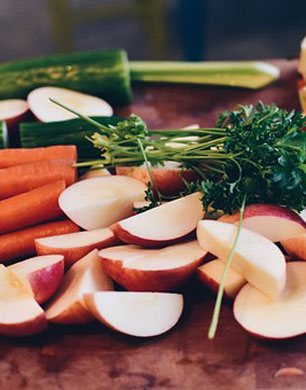
Photo Credit: www.pixabay.com
As the nights begin to draw in and the cold air makes its arrival, it’s more important than ever to keep ourselves fit and healthy to combat winter illnesses. Which is why we’ve spoken to the nutrition experts over at Cardiff Sports Nutrition to find out how you can maximise your nutrient intake and make your meals even healthier.
Combine your Foods
Some foods are better together; Yorkshires with a roast, cheese topped with pickle and the nations favourite; fish and chips. And the same goes for nutrients too. Combining certain foods can help to boost absorption of the nutrients each food carries.
Eggs and avocado are a breakfast staple and there’s good reason for it. The fats in avocado enhance the absorption of the fat-soluble vitamin D in eggs. Look to combine foods with a fat source, with fat-soluble vitamins; for example, vitamins A, D, E and K should be paired with olive oil, butter or nuts.
Spinach is one of the best leafy greens you can eat, and if you serve it with a squeeze of lemon juice the iron is then more bioavailable to the body. The vitamin C in lemon enhances the iron source by up to six times – get squeezing!
Raw vs Cooked
The raw food diet is something which increasingly gains a lot of press, and whilst consuming foods in a natural state is recommended, some things are just better cooked.
For example, broccoli, spinach, kale and peppers contain more nutrients when they are left uncooked. This is due to Vitamin B1, vitamin B5, folate and vitamin C being heat sensitive.
Whereas some foods release more nutrients when they are cooked. Carrots, sweet potatoes, squash and tomatoes are release more beta-carotene and lycopene when cooked, making the nutrients more absorbable.
Avoid boiling when cooking vegetables. Steam, stir-fry or microwave them instead to avoid leaving essential nutrients boiling in the water, rather than your body.
Frozen is Good
Many people often dismiss the frozen isle when they’re in the supermarket, and believe fresh is best – but you may be surprised with what you find in the freezer.
Think about it; foods are at their most fresh when they are picked, so if they are frozen straight after picking then they aren’t going to lost any nutrients by the time they get to the supermarkets, and eventually our plates.
Frozen fruit and vegetables have been found to be richer in vitamin c, polyphenols and antioxidants when they’ve been blanched and frozen just after they’ve been picked, reducing nutrient loss. Studies have found that frozen carrots and blueberries are higher in key nutrients than fresh alternatives!
Stop Wasting Scraps
We live in a throwaway nation and while many of us are making the move to a more conscious living style, more needs to be done to up our eco credentials. Not throwing away scraps if a good place to start and it boosts your health too.
Vegetable peelings contain a high number of nutrients, so instead of peeling why not give your carrots, potatoes and squash a wash instead. You’ll save a job and increase your intake too. If you do peel them, then save the scraps for a soup.
When using citrus fruits, you can try grating the rind for extra antioxidants and flavour. The white flesh part of an orange also contains as much vitamin C as the middle, so don’t be too quick to peel it off.
Don’t go too crazy when chopping broccoli as the stems are rich in vitamin C and calcium. Instead slice them thinly and eat alongside the florets. Alternatively, keep them to one side and chuck them in a stir-fry with a little bit of garlic to really up the nutritional gain.

